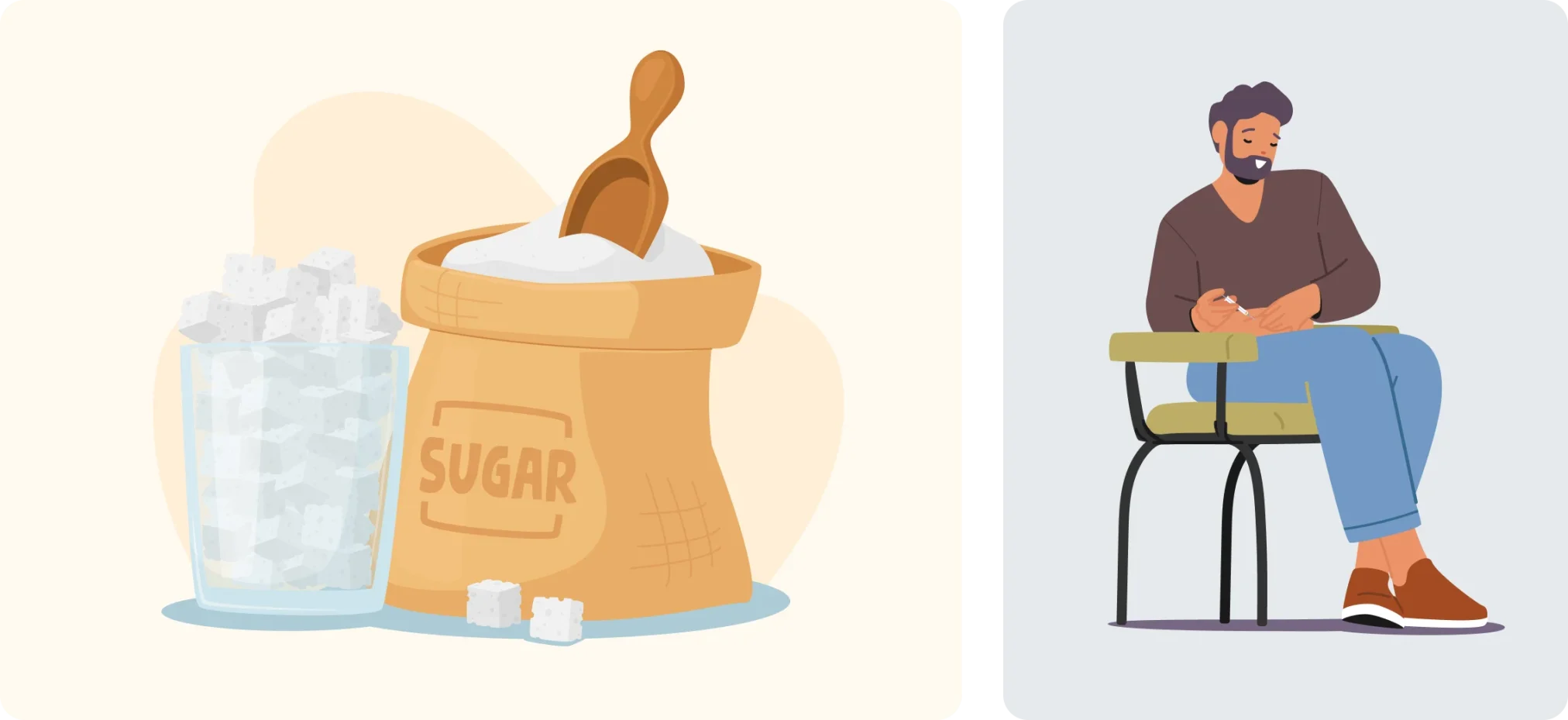Overview
What is Diabetes?
Diabetes is a medical condition in which your body either does not produce enough insulin or is unable to effectively use the insulin to go on to make energy. The pancreas (an organ behind the stomach) produces Insulin to control the amount of glucose (sugar) in the blood. The lack of insulin causes your blood glucose level to become too high and can lead to serious complications affecting your heart, blood vessels, eyes, kidneys, and nerves.
3 main types of diabetes
- Type 1 is when the body’s immune system mistakenly attacks and destroys the insulin-producing cells in the pancreas. It is often called “juvenile” diabetes, because it usually occurs for the first time in childhood or adolescence.
- Type 2 diabetes occurs when the body’s cells become resistant to the effects of insulin. It is far more common than type 1 and is referred to as “late-onset” because it often occurs later in life.
- Gestational diabetes occurs during pregnancy and usually resolves after childbirth. It affects women who have high blood sugar levels during pregnancy but did not have diabetes before becoming pregnant. This condition typically resolves after childbirth, but women who develop gestational diabetes are at an increased risk of developing type 2 diabetes later in life.

Causes
Diabetes has genetic, environmental and lifestyle factors at play. The cause also depends on the type:
- The cause of type 1 diabetes is not fully understood. But it is believed to involve a combination of genetic and environmental factors such as viral infections.
- Type 2 diabetes is primarily caused by a combination of genetic factors and lifestyle factors. It is often linked to advancing age (though it is increasingly occurring in young people) and to lifestyle factors such as obesity, sedentary behaviour and unhealthy diet.
- Gestational diabetes is caused by hormonal changes during pregnancy that interfere with the body’s ability to use insulin effectively.
Symptoms
The symptoms of diabetes vary depending on the type and the individual. Some people don’t notice symptoms for many years. Here are some common symptoms to look out for:
- Frequent urination (Polyuria)
- Excessive thirst (Polydipsia), resulting from frequent urination
- Unintentional weight loss caused by the body breaking down muscle tissue and fat stores for energy when it cannot properly use glucose
- Increased hunger (Polyphagia), even though you eat more you may be constantly hungry because your cells are not receiving enough energy
- Fatigue and tiredness from the lack of energy production
- Blurred vision from changes in the shape of the lens in the eye
- Slow healing of wounds (sores, cuts, or bruises) and more susceptible infections (UTIs, skin, and yeast).
- Tingling or numbness from damaged nerves (neuropathy) typically in the hands, feet, or legs


























